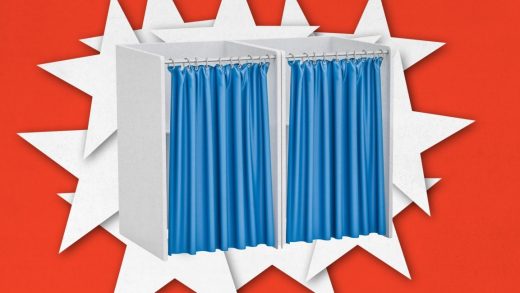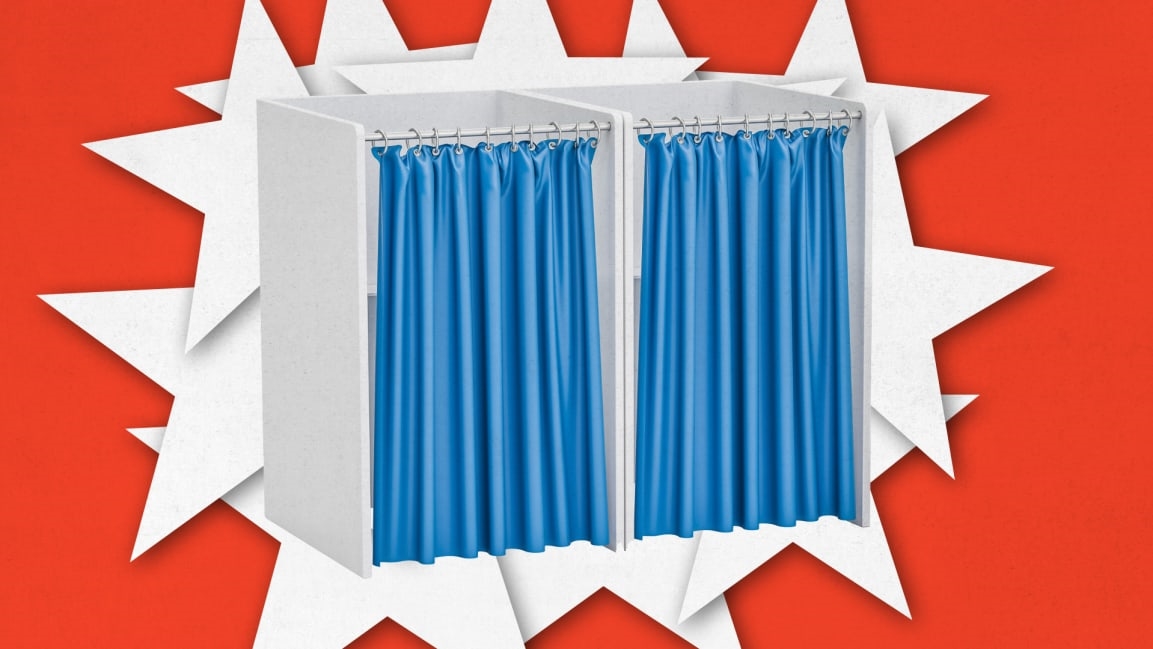Why you should probably vote in person after all
Many of us thinking about the election read Barton Gellman’s excellent feature “The Election That Could Break America” in The Atlantic this week. It scared the shit out of me.
We already knew that Donald Trump and his minions had been working hard to sow doubt in the integrity of mail-in ballots, in a year when millions would like to use them to avoid the health risk of voting in person. They’re working to develop a pretext for declaring the election illegitimate in the event of a defeat. A contested election could result in two candidates showing up on January 20 to take the oath of office, Gellman points out.
But Trump, his lawyers, and GOP allies in state governments could also work the vote-by-mail narrative into an outright win. State governors could declare that the official ballot count does not accurately represent the will of the voters and then choose their own set of Trump-supporting electoral college electors. If this happened in a few swing states it could secure a Trump win.
Gellman makes a surprising statement at the end of the piece: “If you are a voter, think about voting in person after all.” Election experts have for months been doing their best to assure the public that voting by mail is safe and reliable in this coronavirus election. Those with preexisting conditions who need to stay home and vote by mail absolutely should. And yet Gellman makes a powerful point that it may be a good idea to abandon large-scale mail-in voting if it takes away Trump’s pretext for clinging to the presidency even in defeat.
“I think that folks should cast a ballot in whichever method they are most comfortable with, but I personally will be hand-delivering my mail ballot,” says VoteAmerica founder and mail-in voting expert Debra Cleaver about Gellman’s recommendation. “I agree with the general assessment that we want as many ballots delivered by Election Day as humanly possible.”
Cleaver says that many states have, reasonably, changed their laws to allow for accepting mail-in ballots postmarked on Election Day. “But that means we’ll be counting ballots for days and days [after the election], and it would be better for everyone if the ballots left to count won’t change the outcome of the election,” she says.
This year, election experts have started to call this shift—when a perceived election-night result leads to a different winner after all the mail-in votes are counted—”the Blue Shift.” (In contrast, the perceived election night result has been called the “Red Mirage.”) It’s a real possibility this year, because higher numbers of Democrats are expected to vote by mail than Republicans. And it might be the trigger for Trump’s narrative that the mail-in votes that shifted the result were a fraud.
“I agree that an electronic Biden win on election night would derail Trump’s narrative,” attorney and election integrity advocate Jennifer Cohn tells me. “It’s one of several reasons I never jumped in the ‘everyone should vote by mail’ bandwagon.”
Cohn says she can’t recommend any voting method except in-person voting using a hand-marked paper ballot (using a pen, not a touchscreen).
At one point, Donald Trump encouraged voters in North Carolina to test the viability of mail-in voting by casting a mail-in ballot and showing up at the polls to vote in person. Trump knows mail-in voting is safe—he and his family members have voted that way numerous times. The “vote twice” narrative is just another way of sowing doubt and further preparing his pretext for declaring the election illegitimate. Voting twice is a felony in most states.
As elections expert Susan Greenhalgh points out, this too could have cascading disruptive effects. “At a time when we are anticipating the potential of lower poll worker availability and are trying to avoid crowding and congestion at the polls, encouraging voters who have already cast an absentee ballot to show up at the polls will only contribute to long lines and needless delays,” she says in a direct message on Twitter.
There are also challenges with mail-in ballots that the GOP could exploit. VoteAmerica’s Cleaver has pointed out that election officials have rejected mail-in ballots if the signature on the ballot envelope doesn’t exactly match the DMV signature the jurisdiction has on file. Cohn cites the prediction of Don Siegelman, the former governor of Alabama, that the signature-matching hurdle might be weaponized by GOP operatives in some states as a means of rejecting large numbers of mail-in ballots. In Pennsylvania, voters must place votes in a secrecy envelope for them to count, leading to fears that so-called “naked ballots” will be thrown out. Doing this would likely hurt Democratic candidates far more than Republican ones.
I personally have decided to vote in person. I suspect that millions of people have health reasons for voting by mail, and they should. But I’m healthy enough to do my part to take the air out of Trump’s mail-in vote fraud gambit.
(12)



